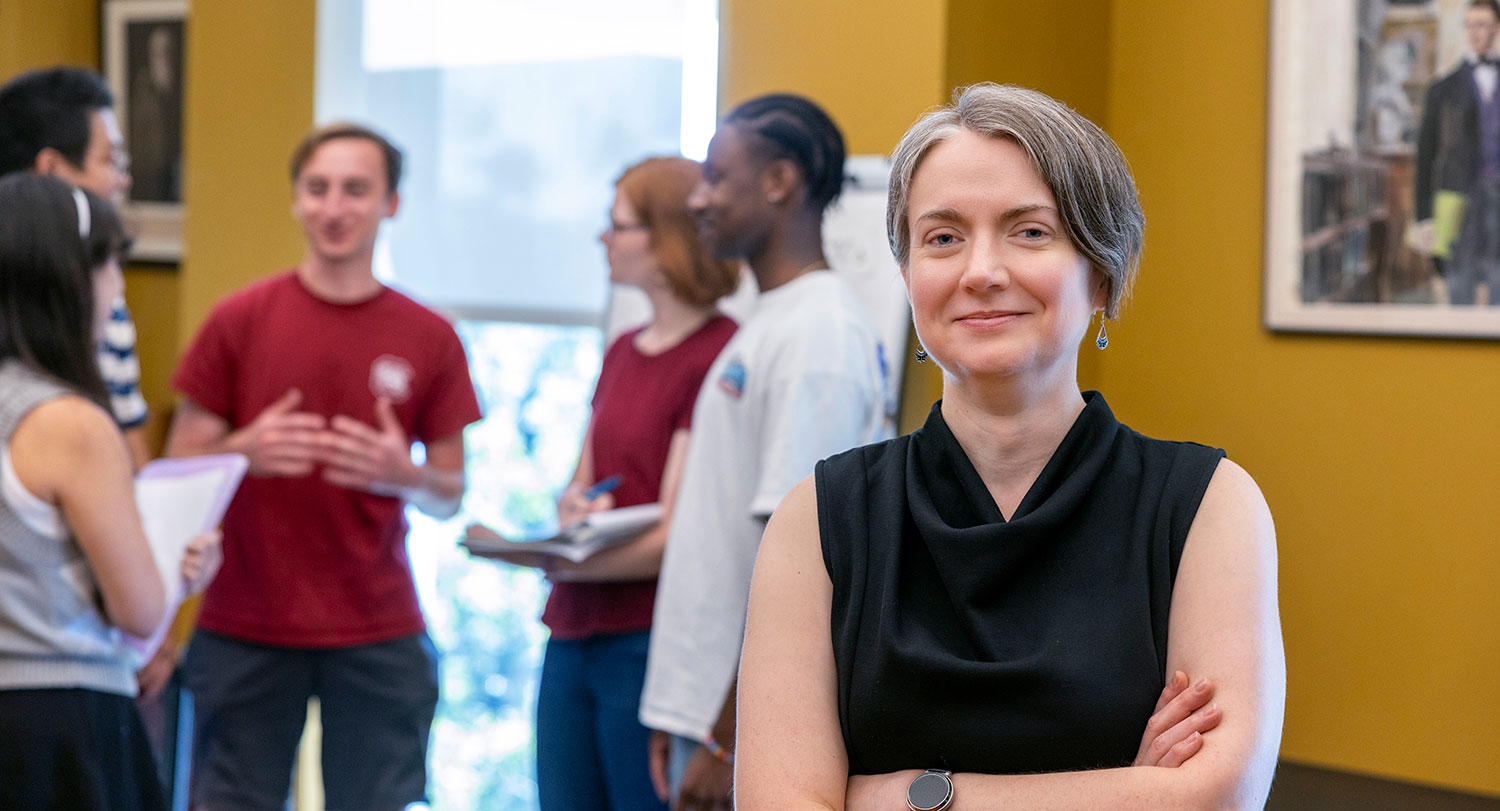
Jeanne Britton knows that it can be intimidating for her students to sit in USC’s Hollings Special Collections Library surrounded by original art, books and manuscripts learning about the literature and culture of the 18th and 19th centuries. So, she tries her best to make the unfamiliar environment and topics more palatable for her students.
The best way to do that? Sometimes, it’s with a well-placed joke. Informal discussions and humor help students feel more at ease, she says, and they then feel more comfortable contributing to class discussions.
“I've just become more convinced that humor has a real place in a discussion-based class,” says Britton, this year’s recipient of the Michael J. Mungo undergraduate teaching award. She is a curator in the Department of Rare Books and Special Collections and has taught English and comparative literature courses in the College of Arts and Sciences and seminars in the Honors College. “Students feel more comfortable trying new ideas or learning about unfamiliar material if they've just laughed. It's also a good way to know if people are paying attention, because if I say something a bit goofy and they don’t laugh, either they don't think it’s funny — which is fine — or they're not paying attention.”
Like many of her colleagues, Britton views education as a conversation between her and her students. It’s not just her lecturing her students, but her students sharing their knowledge and perspectives.
“I want there to be an exchange of knowledge so that there can be a creation of new knowledge,” she says. “So, when I introduce students to material that they're unfamiliar with, I tell them, ‘Here's what I know that brought me to this material. But now let's look at it together and let's ask questions that I haven't asked.’ I'm open about where my knowledge ends and where students can come with me to explore new material together through a framework that the syllabus sets up.”
Britton has developed and redesigned several undergraduate courses to combine students’ previous knowledge with new, challenging material. Many of the students who sign up for her courses do not major or have an interest in humanities, so it’s important to her to make her courses engaging. Her goal is to facilitate experiential learning, independent research and unexpected discoveries. She also integrates items from the Irvin Department of Rare Books and Special Collections to meet traditional objectives and fulfill the libraries’ mission.
I want there to be an exchange of knowledge so that there can be a creation of new knowledge. So, when I introduce students to material that they're unfamiliar with, I tell them, ‘Here's what I know that brought me to this material. But now let's look at it together and let's ask questions that I haven't asked.’ I'm open about where my knowledge ends and where students can come with me to explore new material together through a framework that the syllabus sets up.
For example, she redesigned a freshman composition course to refine students’ essay-writing skills as they learned about the history and significance of writing in the margins of books and studied examples from the rare books library. Toward the end of the semester, she arranged class trips to the Thomas Cooper Library to search for historical markings in older, but not technically rare books.
“Experiential learning and independent research are truly where students learn and retain the most,” she says. “Independent research projects let students learn about themselves and how they organize their time and approach something big. And then experiential learning is valuable because it’s more engaging and uses more of a student's knowledge and all of their sensory experiences. Students retain more because they've experienced and attained knowledge in a more active role.”
In addition to teaching, Britton has had the opportunity to mentor students she works with on grant-funded projects as well as supporting students as they work on their own scholarly research.
Her overall goal for teaching is to foster an openness to the unfamiliar. “No matter what their majors or career plans are, I want students to gain a sense of informed curiosity,” she says.